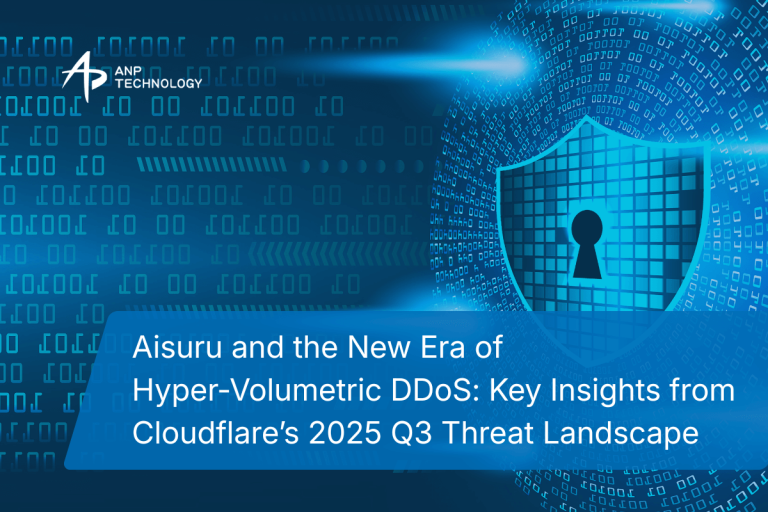
Cloud computing has revolutionized the way companies and individuals manage their data and applications. Cloud services offer flexibility, scalability, and significant cost savings. However, with this convenience comes a major challenge in terms of data security. Cloud security has become a primary concern because sensitive data is often stored and processed on servers managed by third-party service providers.
This article will discuss why cloud security is so important, the challenges involved, and ways to protect data in the cloud.
What is Cloud Security?
Cloud security is refers to a set of policies, procedures, and technologies used to protect data, applications, and services stored in the cloud. Cloud security focuses on protecting data and resources from threats that could compromise a cloud platform. Cloud service providers typically offer security features, but the ultimate responsibility for keeping data safe often lies with the end user, especially in the shared responsibility model.
Shared Responsibility Model
Cloud service providers and customers have a shared responsibility when it comes to securing data and applications managed in the cloud. This model divides the security responsibilities between the cloud provider and the customer:
- Cloud Provider: Manages the physical infrastructure, data center security, and some network security aspects.
- Customer (Business): Manages access control, data encryption, and security configuration for cloud-hosted applications.
Understanding this division of responsibilities is crucial so you can implement the proper security measures across your cloud environment.
Why is Cloud Security So Important?
Cloud computing offers numerous benefits, but it also brings significant risks related to data security. Here are several reasons why cloud security is so important:
1. Storage of Sensitive Data
Many organizations store sensitive data in the cloud, including customer information, financial data, and other personal details. If this data falls into the wrong hands, it can lead to significant financial losses, reputational damage, and legal issues. Therefore, protecting this sensitive data is critical to maintaining the integrity and trust of your business.
2. Threats from Cyberattacks
Cyber threats such as hacking, phishing, and ransomware are becoming increasingly sophisticated. Applications and data stored in the cloud can be prime targets for hackers looking to exploit vulnerabilities. If the cloud provider or the user does not implement proper security measures, these attacks can disrupt business infrastructure.
3. Compliance with Regulations
Many industries, such as banking, healthcare, and finance, are required to comply with stringent security regulations to protect customer data and sensitive information. For example, the General Data Protection Regulation (GDPR) in the EU and the Health Insurance Portability and Accountability Act (HIPAA) in the US regulate how data should be protected. Companies that fail to maintain cloud security can face significant fines and penalties.
4. Data Loss and Downtime
Without proper security, data stored in the cloud can be lost or corrupted, leading to costly downtime for businesses. Additionally, data loss can disrupt business operations and damage a company’s reputation. Effective cloud security ensures that data remains available and can be recovered if an incident occurs.
Challenges in Cloud Security
While many cloud service providers offer advanced security solutions, there are several key challenges in keeping data secure in the cloud:
1. Unauthorized Access
Poor access control can lead to unauthorized access to sensitive data. Without strong authentication, unauthorized users may gain access to protected applications and data. Therefore, it is important to have robust identity management and role-based access control (RBAC) in place for cloud services.
2. Data Encryption
Cloud security relies heavily on data encryption to protect sensitive information. However, not all organizations implement encryption correctly, both in storage and during data transmission. Without proper encryption, data may be accessed or manipulated during transit or while stored in the cloud repository.
3. Complex Security Management
Managing cloud security can be complex, especially if a company uses multiple cloud providers or different cloud services. This complexity can lead to misconfigurations, creating security gaps that hackers can exploit.
4. Multicloud and Hybrid Cloud Security
Organizations using multicloud (using more than one cloud provider) or hybrid cloud (combining private and public clouds) face additional challenges in maintaining consistency and coordination across various platforms. Inconsistent security practices can create gaps that allow threats to infiltrate.
Steps to Enhance Cloud Security
To ensure your data remains secure in the cloud, here are some steps you can take:
1. Use Strong Encryption
Always ensure that data stored in the cloud is encrypted both at rest (data-at-rest) and during transfer (data-in-transit). Major cloud service providers typically offer encryption options, but it’s also important to manage your own encryption keys (using customer-managed encryption) for greater control.
2. Implement Multi-Factor Authentication (MFA)
Multi-Factor Authentication (MFA) is an essential step in ensuring that only authorized users can access data or applications in the cloud. MFA adds an extra layer of security by requiring two or more authentication factors, such as a password and a token, to verify the user’s identity.
3. Manage Access and Identities Carefully
Identity and access management (IAM) is a critical component of cloud security. Use the least privilege principle to ensure that users only have access to the resources they need. Implement role-based access control (RBAC) and audit user activities to detect potential threats.
4. Conduct Regular Security Monitoring
Real-time monitoring of activities in the cloud can help detect potential threats early. Use intrusion detection systems (IDS) and intrusion prevention systems (IPS) to track and respond to threats quickly.
5. Implement Strict Security Policies
Ensure your company has clear and well-enforced security policies. These policies should cover aspects like cloud usage, management of sensitive data, and disaster recovery procedures. Make sure these policies are followed by all employees and stakeholders involved in managing cloud resources.
6. Choose Cloud Providers with High Security Standards
Choose a cloud provider that offers high security levels and compliance with industry standards. Here are some cloud service providers with strong security standards:
- Amazon Web Services (AWS)
AWS offers various security features such as end-to-end encryption, advanced identity and access management, and threat protection with AWS Shield and AWS WAF (Web Application Firewall). AWS also complies with various industry standards, including ISO 27001 and SOC 2. - Google Cloud Platform (GCP)
Google Cloud provides advanced security features like Cloud Identity & Access Management (IAM), data encryption, and the Cloud Security Command Center. GCP also adheres to industry standards like GDPR, ISO 27001, and SOC 2. - Microsoft Azure
Microsoft Azure provides security tools such as Azure Security Center, Azure Active Directory, as well as data encryption and application protection. Azure also complies with standards such as GDPR, ISO 27018, and HIPAA to protect personal data. - IBM Cloud
IBM Cloud offers high-level security services like IBM Cloud Security, data encryption, and threat protection via IBM QRadar. IBM Cloud also meets regulatory standards such as HIPAA and GDPR. - Oracle Cloud
Oracle Cloud offers data protection through Oracle Cloud Security, including encryption, identity management, and application security integration. Oracle Cloud also complies with industry standards like ISO 27001 and SOC 1, 2, 3.
Conclusion
Cloud security is a crucial aspect of keeping your business’s data and applications safe in today’s digital age. With the rise of cyber threats and tightening regulations, companies must ensure they implement the right security measures to protect their data in the cloud. Using encryption, multi-factor authentication, and carefully managing access are vital steps for maintaining effective cloud security.
With a better understanding of why cloud security is important and how to enhance it, companies can confidently and securely leverage cloud technology. Do not overlook cloud security, as it is key to protecting your business assets.
Feel free to contact ANP Technology if you need any assistance!



